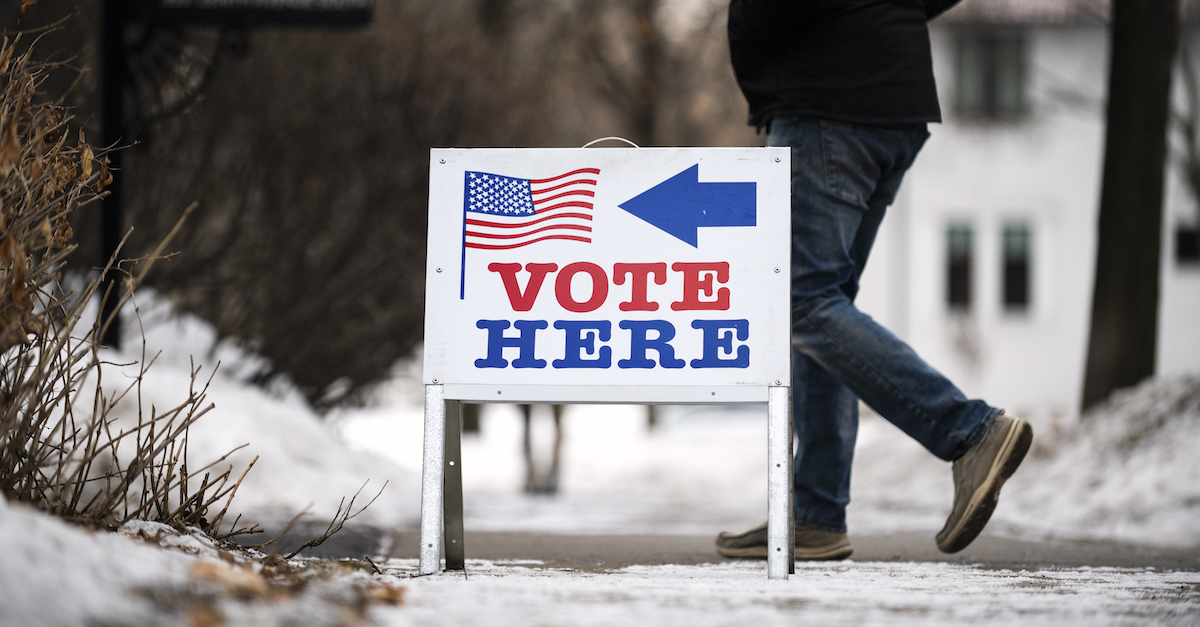
A judge in Ramsey County on Tuesday said that a court order preventing the secretary of state from enforcing laws that restrict persons in the state from assisting voters with their mail-in ballots will remain in place. The court rejected a request from the Republican National Committee (RNC) to lift the injunction, reasoning that the organization’s contention that the order will help Democratic candidates at the expense of their Republican opponents was not a legally plausible argument to show harm.
The request stemmed from ruling last month which halted enforcement of Minn. Stats. §204C.15(1) and §203B.08(1). The former prevented a person from assisting more than three voters who require assistance filling out their ballot due to being blind, disabled, or illiterate. The latter prevented a person assisting more than three people in “returning or mailing” their filled-out absentee ballot.
The Democratic Congressional and Senatorial Campaign Committees (DCCC and DSCC) filed a lawsuit arguing that the regulations uniquely impacted the state’s disabled citizens as well as its Hmong and Somali minority populations, many of whom speak, read, and write with limited English. Minnesota District Judge Thomas Gilligan, Jr. halted enforcement of the laws last month, writing that “especially to language-minority, Native and disabled voters, the challenged laws reduce access to voting and political participation.”
The RNC along with the Republican Party of Minnesota then filed an emergency motion to stay Gilligan’s order, arguing that they would be “irreparably harmed” because the injunction would provide an “enhancement” to Democratic candidates electoral prospects.
According to the GOP Committees, failing to stay the injunction would frustrate “the will of the people,” because the laws in question were enacted by their chosen representatives. They also claimed that the public would be substantially affected by last minute changes to election-administration rules, leading to “voter confusion” and an erosion of “confidence” in Minnesota’s elections.
Declarations submitted by top GOP party executives Christopher Carr and Rebecca Alery broadly claimed that changes to the election laws altered “the structure of the competitive environment” and unfairly benefitted Democratic candidates. They reasoned that while neither party’s committees “fund or support activities to assist voters” in marking or mailing ballots, the GOP has “never supported such activities” and thus lack the experience and infrastructure to support those efforts.
Judge Gilligan did not find the arguments to suppress voting in the state convincing.
“In essence, the Republican Committees contend that the evaluation of harms between them and the Democratic Committees is a zero-sum game. Whatever advantages one party necessarily harms the other. According to the Republican Committees, because the temporary injunction allows the Democratic Committees to assist ‘its’ voters, it will disadvantage the Republican Committees, their members, voters, and supported candidates,” he wrote.
“As the court understands this argument, it is not necessarily that the opportunity of the Republican Committees to influence voters to vote for their supported candidates is being affected by the temporary injunction. Instead, it is the threat that voters might have greater access to vote for a candidate supported by the Democratic Committees that is the issue. In other words, because of the temporary injunction, more voters might have an opportunity to cast their vote for a candidate from the opposing party which presents the harm. More voters having the opportunity to vote for their preferred candidate does not, however, present a convincing basis for harm.”
Read the full opinion below.
Order Denying Stay of Temp. Injunction by Law&Crime on Scribd
(Photo by Stephen Maturen/Getty Images)